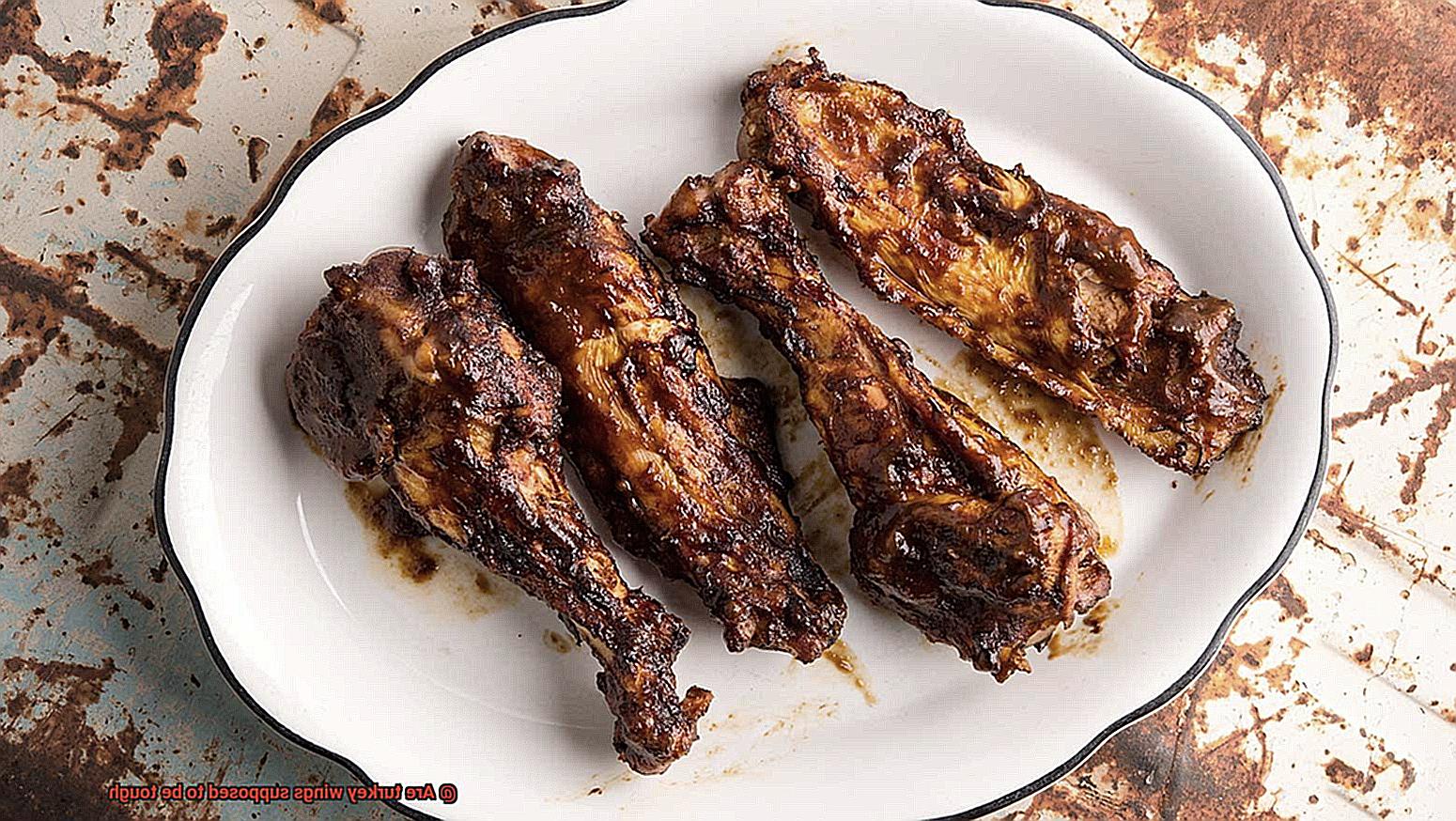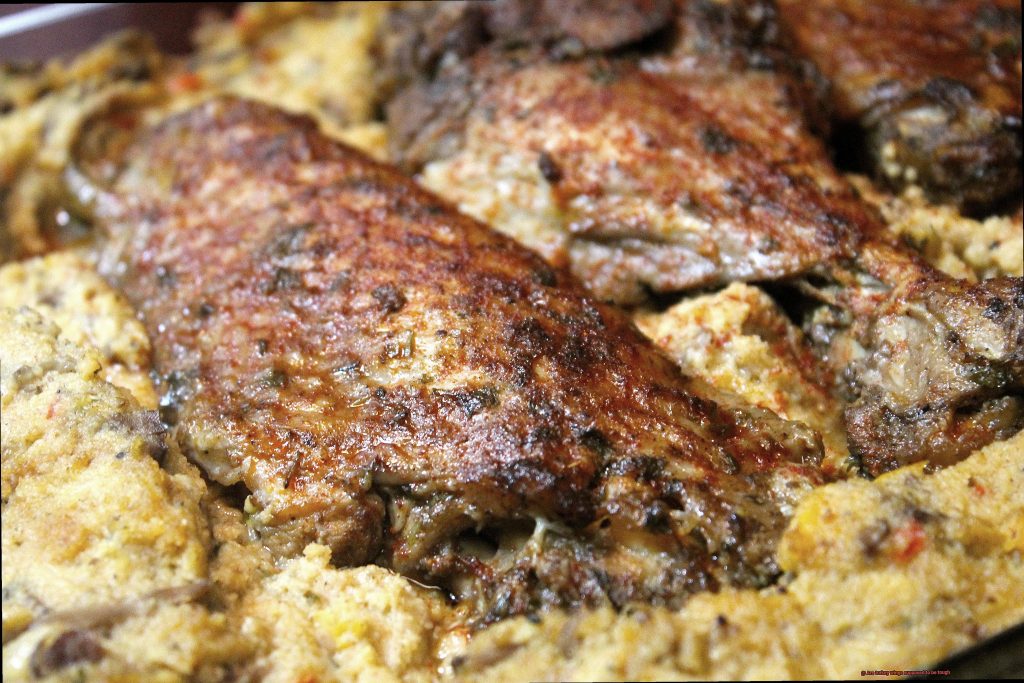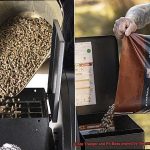Ah, turkey wings. A classic holiday dish that can be incredibly delicious when prepared correctly. But let’s face it, sometimes they can be as tough as old boots. So, the million-dollar question is: Are turkey wings supposed to be tough?
Don’t worry, my fellow culinary adventurers. In this blog post, we’re going to dive deep into the world of turkey wings and explore whether they’re meant to put your jaw muscles to work.
First up, we’ll break down why turkey wings can turn out tough in the first place. We’ll cover everything from the age of the bird to cooking times and temperatures to preparation methods.
Next, we’ll get into some cooking techniques that will help you achieve tender and juicy turkey wings every time. Whether you prefer braising or slow-cooking or smoking your meat, we’ve got you covered with all the methods that will transform your tough turkey wings into a mouth-watering main course.
And finally, we’ll share some practical tips and tricks for preparing and cooking turkey wings at home like a pro. From selecting the best cuts of meat to using a trusty meat thermometer to determine optimal cooking times, we’ve got all the knowledge you need to become a master of the turkey wing.
So whether you’re an experienced cook or just starting out on your culinary journey, come along with us as we uncover the secrets of perfecting those succulent turkey wings. Let’s get cooking.
Contents
What are Turkey Wings?
Turkey wings are a delectable and succulent part of the bird that can be used to add a twist to your meals. These wings are a popular choice among those who want to enjoy the taste of turkey without having to cook a whole bird. Turkey wings are also ideal for those who enjoy experimenting with different flavors and seasonings.
Turkey wings are generally larger and meatier than chicken wings, with more muscle fibers and connective tissue. This means that they can be tougher than other types of poultry. However, this also makes them all the more flavorful and satisfying when cooked correctly.
To ensure that your turkey wings are moist and tender, it is important to prepare and cook them properly. One way to tenderize the wings is by brining them before cooking. This involves soaking the meat in a solution of saltwater, spices, and herbs for several hours before cooking. This process helps break down the proteins in the meat, resulting in more tender and flavorful turkey wings.
Another technique that can help make turkey wings less tough is to slow-cook them. Methods such as roasting or braising allow the meat to cook slowly, breaking down the connective tissues and making it more tender. However, overcooking can lead to toughness, so it is crucial to monitor the internal temperature of the meat using a meat thermometer.
Turkey wings are also readily available in most grocery stores, either fresh or frozen. They can be purchased whole or separated into drumettes and flats, like chicken wings. Pre-seasoned or marinated options are also available, making cooking even easier.
Are Turkey Wings Supposed to be Tough?
The answer is not as simple as a yes or no. As an expert on the matter, I can tell you that the texture of turkey wings can depend on several factors. Let’s explore what makes turkey wings tender or tough.
Firstly, turkey wings are a lean cut of meat with less fat and connective tissue than other parts of the turkey. This makes them more prone to drying out during cooking, resulting in tough and chewy meat. However, this doesn’t mean they are supposed to be tough. With extra care during cooking, turkey wings can be just as succulent as any other part of the turkey.
The cooking method used is another critical factor that affects the texture of turkey wings. Overcooking or cooking at high temperatures can make the meat dry and tough. On the other hand, if cooked low and slow, such as through braising or smoking, the meat can become tender and juicy. So, it’s crucial to choose the right cooking method to ensure your turkey wings are perfectly cooked.
Lastly, how the wings are prepared before cooking also plays a vital role in their texture. Marinating the wings in a flavorful mixture before cooking can help tenderize the meat and add more depth of flavor. Some recipes even recommend brining the wings to add moisture and flavor.
Reasons Why Turkey Wings Can Be Tough
As an expert on this topic, I have researched and compiled the top reasons why turkey wings can be tough, along with helpful tips to ensure tender and flavorful meat every time.
Reason #1: Overcooking
Overcooking is one of the most common reasons why turkey wings can be tough. When meat is cooked for too long, the proteins in it become denatured and start to shrink, causing the meat to become tough and dry. To prevent this from happening, it is crucial to monitor the internal temperature of the meat using a meat thermometer and remove it from the heat as soon as it reaches a safe temperature. This will ensure that the meat is cooked perfectly without being overdone.
Reason #2: Lack of Moisture
Another reason why turkey wings can be tough is due to a lack of moisture. Turkey wings are low in fat, which means they can dry out quickly if not cooked properly. To prevent this from happening, it’s essential to keep the meat moist during cooking by basting it or wrapping it in foil. This will help retain moisture and keep your meat tender and juicy.
Reason #3: Poor Quality Meat
The quality of the turkey wings can also affect how tough they are. If the meat is old or has been frozen and thawed multiple times, it can become tough and dry. It’s important to choose fresh, high-quality meat when cooking turkey wings. Always check the expiration date and make sure that your turkey wings are fresh before cooking them.
Reason #4: Incorrect Cooking Method
The cooking method used can also contribute to tough turkey wings. For example, grilling turkey wings over high heat for too long can cause them to become dry and chewy. Slow-cooking or braising is a better option for keeping the meat tender and juicy. By using a slow-cooking method, you can ensure that the meat is cooked evenly and retains its moisture.
Reason #5: Age of the Bird
The age of the bird can have a significant impact on the tenderness of the meat. Older birds tend to have tougher meat, which can make turkey wings tougher than other cuts of meat. Therefore, it is important to choose younger birds or smaller turkey wings for a more tender result. When purchasing your turkey wings, look for smaller cuts or younger birds to ensure that your meat is tender and delicious.
How to Make Turkey Wings Tender
When it comes to making turkey wings tender, there are several techniques you can use to ensure that they turn out perfectly every time. Here are five sub-sections that explain these techniques in more detail:
Marinate Overnight
Marinating turkey wings in a mixture of olive oil, herbs, and spices before cooking is an excellent way to make the meat more tender. The marinade helps to break down the tough fibers, resulting in a more succulent and flavorful dish. To get the most out of your marinade, be sure to let the wings soak for at least a few hours, if not overnight.
Brine Before Cooking
Another great way to tenderize turkey wings is to brine them before cooking. Brining involves soaking the meat in a saltwater solution for several hours, which helps to add moisture and flavor while also breaking down the proteins that can make the meat tough. After brining, be sure to rinse the wings thoroughly and pat them dry before cooking.
Slow Cook at a Low Temperature
Slow-cooking turkey wings at a low temperature is one of the best ways to make them tender and juicy. This method allows the meat to cook slowly and evenly, resulting in a moist and succulent dish. You can use a slow cooker or simply cook them in your oven at a low temperature (around 300°F) for several hours until they are fully cooked.
Braise in a Flavorful Liquid
Braising is another technique that can help make turkey wings tender and delicious. This involves cooking the wings in a flavorful liquid, such as broth or wine, which helps to keep the meat moist and adds depth of flavor. To braise turkey wings, simply sear them first in a hot pan, then add your liquid of choice and let them simmer until cooked through.
Avoid Overcooking
One of the biggest mistakes people make when cooking turkey wings is overcooking them. This can result in tough, dry meat that is difficult to chew. To avoid this, be sure to check the temperature frequently while cooking and remove the wings from heat as soon as they are fully cooked (at least 165°F). Let them rest for a few minutes before serving to allow the juices to redistribute and make the meat more tender.
Brining as a Preparation Technique
It’s time to give brining a try. This preparation technique has been used for centuries to enhance the flavor and texture of meat, resulting in juicy, tender, and flavorful poultry.
So, what exactly is brining? It involves soaking turkey wings (or any other meat) in a solution of salt and water for several hours before cooking. The salt helps to break down the proteins in the meat, which results in a more tender and juicy texture. In addition to this, brining also allows for additional flavors to be infused into the meat by adding herbs, garlic, or other aromatics to the brine mixture.
Brining turkey wings is easy and straightforward. First, mix 1 cup of kosher salt with 1 gallon of water in a large pot or container. Add any additional seasonings or aromatics to the brine mixture if desired. Submerge the turkey wings in the brine and refrigerate for at least 4 hours or up to 24 hours.
When it’s time to cook your turkey wings, remove them from the brine and rinse them thoroughly under cold running water to remove any excess salt. Pat them dry with paper towels and season as desired before cooking. Whether you prefer baking, grilling, or frying your turkey wings, brining guarantees that they will come out moist and full of flavor every time.
Brining is especially useful for larger cuts of meat like turkey wings that can often be tough and dry when cooked. By using this technique, you can ensure that your poultry is always flavorful, moist, and tender. So why not take your cooking skills to the next level by experimenting with different brine mixtures and seasonings?
Slow-Cooking Techniques for Making Turkey Wings Tender
Don’t throw in the towel just yet. Slow-cooking is the answer to making your turkey wings tender and juicy. As an expert on the subject, let me guide you through some tips and tricks for achieving perfect results.
First on our list is the crockpot or slow cooker method. This technique is ideal for those who want a hassle-free way to cook their turkey wings. Simply season your wings with your preferred spices and liquid (like broth or wine), place them in the crockpot, and let them cook on low for several hours. The result? Wings that are fall-off-the-bone tender and bursting with flavor.
For those who prefer a more hands-on approach, braising is the way to go. Start by searing your wings in a hot pan before adding liquid and cooking them over low heat for an extended period. Braising locks in moisture and flavor, resulting in succulent meat that will leave your taste buds dancing.

Of course, no matter which slow-cooking technique you choose, it’s important to keep an eye on the internal temperature of the meat. The USDA recommends cooking turkey to an internal temperature of 165°F to ensure that any harmful bacteria are destroyed and that the meat is safe to eat. So, be sure to use a meat thermometer to check the temperature periodically throughout the cooking process.
The Dangers of Overcooking Turkey Wings
Overcooking is the biggest danger when it comes to preparing this delicious bird. Let’s explore why and how you can avoid this culinary catastrophe.
The Risks of Overcooking Turkey Wings
Overcooking can cause the wings to become tough and chewy, making them unappetizing and difficult to eat. In particular, the meatier portions of the wing, such as the drumettes and flats, are prone to becoming tough if overcooked.
Several factors can lead to overcooking, such as cooking at too high a temperature or for too long, or failing to monitor the temperature of the meat. Additionally, the quality of the bird itself can impact how well it cooks. Older or lower-quality birds may be more likely to become tough and chewy when cooked.
How to Avoid Overcooking Turkey Wings
To avoid overcooking turkey wings, it’s essential to use a meat thermometer to monitor the internal temperature of the meat. The USDA recommends cooking turkey wings to an internal temperature of 165°F (74°C) to ensure they are safe to eat. However, it’s also crucial not to cook them beyond this point, as they may become dry and unappetizing.
Another way to prevent overcooked wings is by using a cooking method that allows for even heating and proper moisture retention. Grilling and smoking are excellent options as they provide slow, even cooking that helps retain moisture. Ensure that you watch the temperature closely and adjust as necessary to ensure that the wings cook evenly without becoming overcooked.
Conclusion
To put it simply, turkey wings are not supposed to be tough. However, achieving that perfect texture requires proper preparation and cooking techniques. The age of the bird, cooking times and temperatures, and preparation methods all play a role in determining the tenderness of the meat.
To ensure that your turkey wings are tender and juicy every time, there are several steps you can take. Using a meat thermometer is crucial in monitoring the internal temperature of the meat to avoid overcooking. Brining is an excellent preparation technique for adding moisture and flavor to turkey wings before cooking. Slow-cooking methods such as using a crockpot or braising can also help make the meat more tender by locking in moisture and flavor.
Overcooking is a common mistake when it comes to preparing turkey wings, resulting in tough and chewy meat that’s unappetizing. To avoid this culinary catastrophe, it’s essential to monitor the temperature closely while cooking and use a method that allows for even heating and proper moisture retention.
In summary, with careful attention to preparation and cooking techniques, your turkey wings can become a mouth-watering main course that will leave your taste buds dancing.






